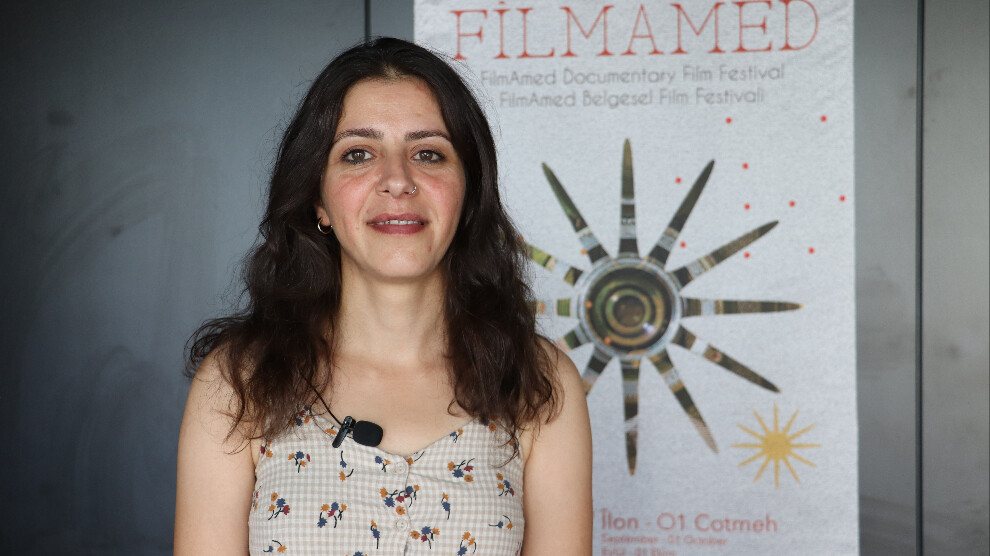Resistance against assimilation: FilmAmed
Film director Dilan Toftik says the FilmAmed Documentary Film Festival is a resistance against assimilation policies.

MEDİNE MAMEDOĞLU
Amed (Diyarbakır)-The 8th FilmAmed Documentary Film Festival was held in Amed from September 27 and October 1 by the Middle East Cinema Academy Association (OSAD) aiming to preserve Kurdish language and culture assimilation policies. At the festival, 31 films drawing attention to the censorship on cinema and Kurdish language were screened.
Hundreds of citizens watched the documentary films screened at the festival. Most of the documentary films screened at the festival were about native language, the oppression and intimidation policies that the Kurdish people have been experiencing for many years. Especially after the self-governing resistance in 2016, a special war policy has been implemented in Kurdish cities and this war policy has targeted mostly Kurdish culture-art and language. Despite everything, Kurdish artists keep resisting the censorship against their native language.
NuJINHA spoke to film director Dilan Toftik about the 8th FilmAmed Documentary Film Festival and the interest of the people in the festival.
‘We saw how people missed films in their native language’
“The audience watched their own story in their native language at the festival,” said Dilan Toftik. “We held the festival after three years. People showed great interest in the festival. During the festival, they watched many documentary films, talked to film directors and asked many questions about the films. All documentary films screened at the festival were Kurdish documentary films. The Kurdish people have been resisting in order to preserve their native language. This festival is a part of this resistance. The stories told by the screened films are the real stories of the Kurdish people.”
‘Kurdish people struggle to preserve their native language’
Dilan Toftik thinks the great interest in the festival was a response to the assimilation and censorship policies against the Kurdish language. “The Kurdish people have been subjected to an assimilation policy for years by the state. Kurdish people struggle to have space in order to protect and preserve their language against this policy. This festival provides this space to the Kurdish people. In addition to the assimilation policy, Kurdish art is subjected to serious censorship; concerts are canceled and theater plays are banned,” Dilan Toftik told us.
‘We will keep working’
Dilan Toftik concluded her speech, saying, “The Middle East Cinema Academy Association makes great efforts by producing short films, documentaries and feature films. It also supports filmmakers. We will keep working despite the assimilation and censorship policies.”
